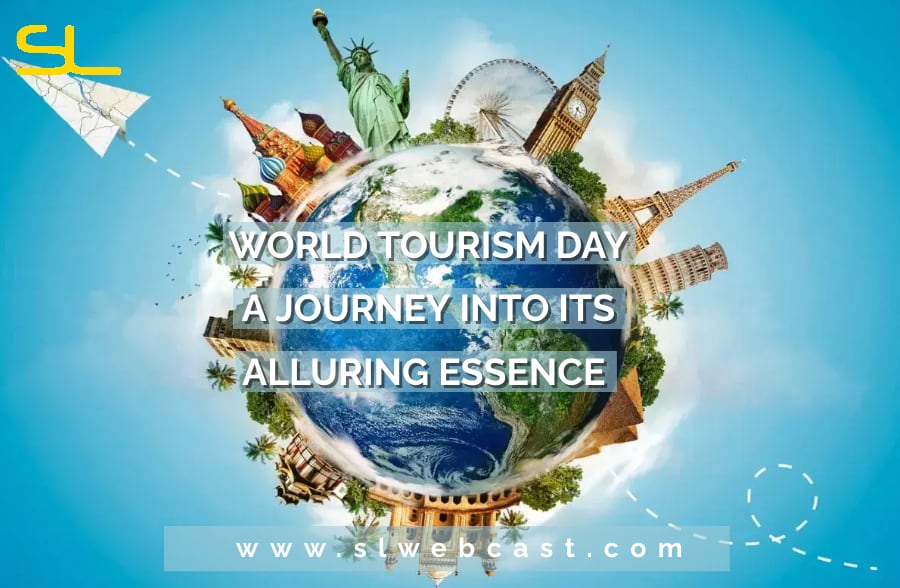Exploring through the Natural Lens
Capturing the Global Visuals on World Tourism Day is way more special than any. Tourists across the globe travel to any destination according to their preferences. Tourism is a process of exploration and education one’s self. The Lens captures every landscape’s original view to make things clearer. Every year on September 27th, everyone across the nation united for one title to celebrate World Tourism Day. The day highlights economic growth, cultural exchange, and global understanding. The United Nations World Tourism Organization (UNWTO) emphasized the day to foster awareness about the tourism interconnection and its importance. This article will be going deeper into the multifaceted impact of tourism in different cultures, economies, and ecosystems, shedding light on the positive transformations that brings and the challenges it must address in the current globe.
Tourism as a Cultural Bridge
Mainly tourism serves as a powerful bridge among cultures, connecting diverse people across the club which births terms like unity, cultural exchange, peace, and mutual understanding. The Cultural exchange offers a wide opportunity to highlight one person’s identity, cuisines, traditions and customs, languages, and multinational businesses. The bridge that connects the locals and visitors emphasizes more on enriching experiences and also enhances mutual respect, tolerance, and the sharing of values. Moreover, the main stakeholder here is the tourist guide; he or she will be representing one particular country he or she can interpret all the locations of one particular country for the people. A UNESCO report highlights the power of tourism in preserving intangible cultural heritage, as tourists become patrons of traditions and crafts, nurturing their continuity for generations to come.
Economic Benefits and Sustainable Development
Earlier we focused on how cultural exchange develops one tourist in diverse manners like tourism plays a pivotal role in boosting economies. This also builds mutual understanding among the businessmen which highlights the global culture. Developments of multinational companies across the globe, for example, KFC, McDonald’s, Coca-Cola, and Nestle etc are some multinational companies in many countries in the globe. These help developing countries to develop by introducing new materials to the business and establishing those to the locals in the country. Today each country not only offers its national food but includes a wide variety of food and products in the market to bring tourist satisfaction and economic growth as well. Today, the super government helps the poor counties through dry rations which is mean more economically which also united nation by nation. According to a study by the World Travel and Tourism Council (WTTC), travel and tourism’s total contribution to global GDP was 10.4% in 2019. However, the COVID-19 pandemic exposed the vulnerability of this sector to global crises, emphasizing the need for sustainable practices to ensure long-term growth. Subsequently, tourism practices, such as ecotourism and community-based tourism, aim to minimize negative impacts by promoting responsible travel and supporting local ecosystems.
Environmental Considerations
The surge in air travel and mass tourism has led to concerns about carbon emissions and over-tourism. Here over tourism concept refers to destinations struggling to manage the influx of visitors, leading to ecological degradation and loss of local Identity. Moreover, tourism practices strive to strike a balance, preserving the natural beauty and its existence while providing visitors with enriching experiences.
Challenges and Opportunities
World Tourism Day provides a platform to address the challenges within the industry and identity and enhance the opportunities for better improvement for tomorrow. The World Tourism Organization UNWTO emphasized the need for innovation and technology integration to enhance traveller experiences and streamline operations. Subsequently, the most significant pandemic highlighted the importance of building a resilient tourism system that can withstand shocks while making sure the safety protocols and well-being of tourists and locals alike
Positive Impact on Local Communities
The notable aspects of tourism are the credibility and the recognition of local communities. This also helps the locals to access greater job opportunities, better hospitality, transportation, and the arts; tourism also contributes to poverty alleviation and empowerment in the economy. For example, consider community-based tourism. This initiative empowers locals by involving them in tourism activities which allows them to showcase their heritage and traditions while generating income. This direct engagement ensures that the economic benefits of tourism are distributed more equitably.
Preservation of Natural and Cultural Heritage
Protecting one own country’s natural and Cultural Heritage is critical because that is a significant highlight of the country which is also preserved for the future generation. The value of one country’s heritage might be not heavy for the external entities so there can be damages that can happen over. Tourist sites often require preservation efforts, leading to increased awareness and funding for reservations. This aids in safeguarding historical landmarks, ecosystems, and indigenous culture. One of the highlighted examples is, Machu Picchu in Peru, where the influx of tourists has facilitated conservation efforts and improved the local economy.
Technology and Changing Travel Platform
The prime development in technology gives digital access to the globe to the desired tourist that he or she wished for. Today’s online platform enables travellers to research, book accommodation, and plan itineraries with ease. Moreover, today social media becoming a major trend which is a virtual travelogue, showcasing destinations to a global audience. Today many social media users have started travel vlogs in different ways that give a better visual landscape. Moreover, the increasing digital footprint also raises concerns about the authenticity of travel experiences and the potential for over-tourism.
In today’s technologically advanced world, World Tourism Day gives a significant reminder to explore, educate, and experience a positive and better change. Anyways, it also demands responsibility from all the stakeholders – governments, businesses, travellers, and themselves in terms of printing cultural exchange. Enhancing sustainable practices, supporting local communities, and respecting the environment will give a better understating of World Tourism Day. With one click, many views through mobile and smart destinations and explore through your own visuals.
References:
UNESCO (2009) -World Heritage and Tourism in a Changing Climate. https://whc.unesco.org/en/climatechange/
WTTC (2021) -Economic Impact Reports. https://www.wttc.org/economic-impact
UNWTO (2021) – Tourism for Inclusive Growth. https://www.unwto.org/tourism-inclusive-growth
UNWTO (2021) -Tourism for Inclusive Growth. https://www.unwto.org/tourism-inclusive-growth
http://snnprpsue.gov.et/index.php?option=com_content&view=article&id=20&Itemid=123


